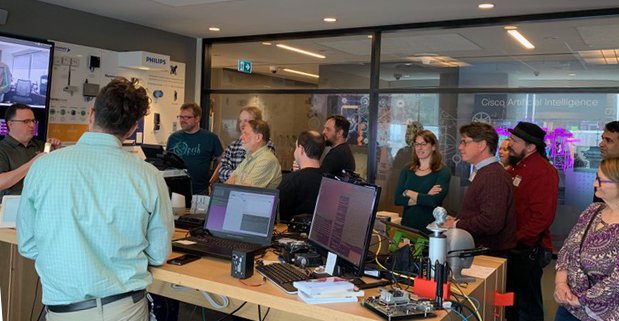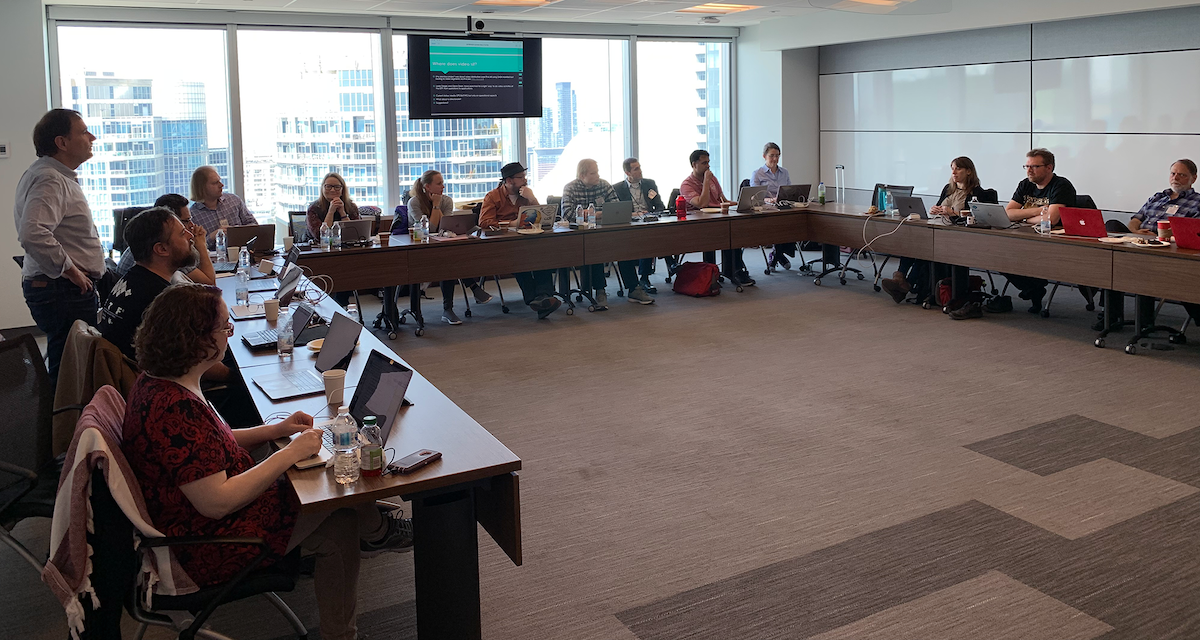Filter by topic and date
IESG Retreat 2019
- Alissa Cooper IETF Chair
2 May 2019
The Internet Engineering Steering Group (IESG) spent two days of quality time exploring ways to improve the IETF at its annual retreat last week.
Every year the IESG takes a couple of days to get together shortly after the first IETF meeting of the year to focus on issues that need deeper consideration than we have time for at the IETF meetings. Last week we met in Toronto to have these in-depth discussions. The retreat also provided a great opportunity for the new area directors (ADs) to get to know the continuing ones and for everyone to learn from each other. As you can see from the agenda, we covered a wide range of topics relating to how we organize work in the IETF, the documents we produce, how we use IETF meeting time, and more.

We kicked off the retreat with a discussion about organizing the work of the IESG and the IETF. We discussed the likelihood of working groups closing and new working groups forming in different areas. We noted a concern about the potential for pipelines of future area directors to be limited to people who work at a small number of large companies, which is not a new concern but a good one for the full IESG to recognize. To prompt us to share document load amongst ourselves more fluidly, we decided to add a standing item to our informal telechat agenda to ask whether any ADs have documents they would like to shuffle or swap with other ADs.
Next on the agenda was a conversation about vulnerability disclosure processes. Many organizations, including some other standards organizations, have established policies and processes for receiving vulnerability reports and developing mitigations. We discussed what the options for the IETF might be in this area given the transparency of our process and the distributed nature of our work. Security AD Roman Danyliw will be working up a proposal that we will plan to share with the community for comment.

We had two discussions related to producing IETF documents. One concerned the “updates” tag and its many interpretations. Given that we have not managed to find community consensus about what it means, Internet AD Suresh Krishnan will be writing up a draft proposing to retire the “updates” tag and replace it with a new set of tags each with more specific semantics.
The other document discussion related to an idea for an experiment proposing a new, non-archival, non-RFC document type. The idea here is fairly simple: allow working group chairs, perhaps with AD approval, to create web pages with a common format that state the current target for implementation or deployment for specific protocols. Some people might recognize the similarities of this to other organizations’ “living documents,” although that moniker is perhaps not the best fit to describe the idea. Operations AD Warren Kumari and Internet Architecture Board Chair Ted Hardie are going to work together to flesh out the experiment proposal more fully for discussion with the community.
As far as improving IETF meetings, we reviewed the feedback on the Technology Deep Dive - Modern Router Architecture session at IETF 104 and discussed the focus and potential topics for similar sessions on other topics going forward, including web server/CDN architecture, the evolution of global interdomain routing, and DNS architecture. We also discussed recent agenda experiments and settled on a plan for IETF 105.
Finally, we had a couple of discussions concerning how people relate to one another in the community. Since IETF 103 we have been discussing with the working group chairs what we can all do to inspire more collegial behavior in the IETF. We reviewed the feedback we received from the chairs at IETF 104 and identified two potential areas to further pursue: developing a common understanding of behaviors to encourage and discourage, and exploring the possibility of regular training for the IETF leadership and working group chairs about how to manage behavior in a group. Applications and Real-Time AD Barry Leiba will be working with Roman to follow up on these items. We also discussed the request we all received to AD-sponsor a draft amending the IETF recall process and the discussion threads that have emerged from that request. As noted earlier this week, we setup a mailing list and identified IESG leads to help guide that discussion.
As always, the IESG is open to input and feedback from the community, about these topics or any others. You can reach us at iesg@ietf.org.